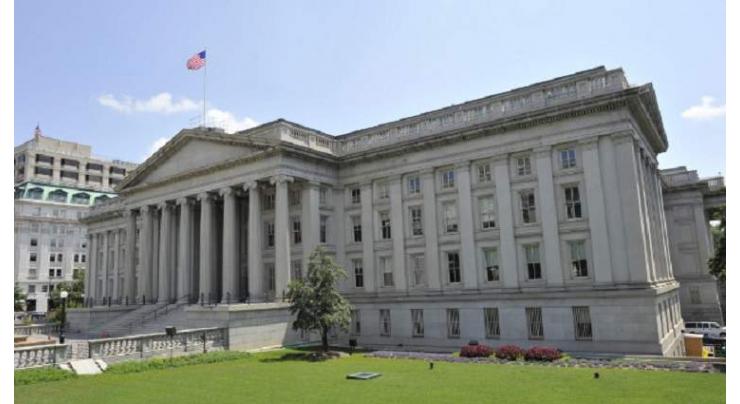
US Sanctions 2 South Sudan Businessmen, 6 Companies For Corruption - Treasury Dept.
Mohammad Ali (@ChaudhryMAli88) Published October 11, 2019 | 09:39 PM

The United States imposed economic sanctions on South Sudanese business tycoons Ashraf Seed Ahmed Al-Cardinal and Kur Ajing Ater and companies they control for bribery, kickbacks and procurement fraud, the Treasury Department announced in a press release on Friday
"Al-Cardinal and Ajing leverage their businesses and political connections to engage in corruption at great expense to the South Sudanese people," Treasury Undersecretary for Terrorism Sigal Mandelker said in the release.
Treasury also sanctioned five companies owned or controlled by Al-Cardinal, and one company owned or controlled by Ajing, the release said.
The release cited the Global Magnitsky Act, which authorizes sanctions against human rights abusers, as well as a presidential executive order extending the law to corruption as a source of abuses.
The US accused Al-Cardinal of acting as an intermediary for South Sudan's government to move foreign Currency into offshore accounts.
Ajing was accused of paying bribes to government officials for access to oil, according to the release.
Human Rights Watch (HRW) has documented human rights abuses by South Sudanese soldiers and rebels in an ethnically based civil war. A recent HRW report accused soldiers of shooting civilians, burning homes, destroying crops and using rape to terrorize communities.
The United States Congress adopted the Magnitsky Act in 2012 following the 2009 death of Russian tax accountant Sergei Magnitsky, who investigators ruled died of natural causes in prison due to complications caused by diabetes and a heart problem.
In 2016, the Congress expanded the legislation by adopting the Global Magnitsky Act, which allows the US government to impose sanctions on any entity or individual - regardless of nationality - implicated in human rights abuses or corruption. Other countries including the United Kingdom and Canada have adopted similar legislation.
President Donald Trump in December 2017 signed an executive order declaring a national emergency due to serious rights abuses and corruption around the world, thereby expanding the authorities of the Magnitsky legislation.
Related Topics
Recent Stories

SC orders end of encroachments in Karachi

Nazish Jahangir denies viral screenshots, calls them fake

Govt likely to hike electricity price once again

Bismah Maroof announces immediate retirement from international cricket

Malala expresses unwavering support for Gaza people

Selection committee dissolved over Pakistan women cricket team's poor performanc ..

Punjab CM Maryam Nawaz in police uniform at Chung police center

Currency Rate In Pakistan - Dollar, Euro, Pound, Riyal Rates On 25 April 2024

Today Gold Rate in Pakistan 25 April 2024

Mired in crisis, Boeing reports another loss

Session Awarding Ceremony 2024 held at Cadet College Muzaffarabad

Austrian ski great Hirscher to make comeback under Dutch flag
More Stories From World
-
Paris landmark Moulin Rouge's windmill sails collapse
10 minutes ago -
Ahead of feared Rafah invasion, Palestinians mourn bombardment dead
10 minutes ago -
155 killed in Tanzania as heavy rains cause floods, landslides: PM
10 minutes ago -
Car giants vie for EV crown at Beijing's Auto China show
10 minutes ago -
Chinese defense minister to attend SCO meeting in Kazakhstan
20 minutes ago -
China-Bangladesh to hold joint military exercise in May
30 minutes ago
-
Residents protest as Venice launches five-euro entry fee
40 minutes ago -
Portugal marks 50 years of democracy with far right on rise
1 hour ago -
Pakistan envoy visits TomatoWorld in Netherlands
1 hour ago -
Chinese defense minister to attend SCO meeting in Kazakhstan
1 hour ago -
China, Pakistan should engage in greater counter-terrorism cooperation to combat hostile forces: Khu ..
1 hour ago -
Scottish leader scraps coalition deal with Greens
1 hour ago